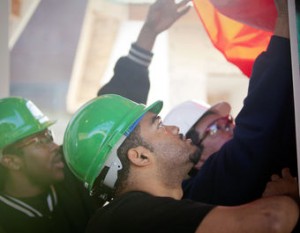| |
Video: Changing the World, One Map at a TimePatrick Meier | May 4, 2011 at 9:31 am | Tags: Re:publica, rp11, video | Categories: Conferences, Crisis Mapping, Crowdsourcing, Digital Activism, Humanitarian Tech, New Media, Ushahidi | URL: http://wp.me/pecFU-1oX
|
Hosted in the beautiful city of Berlin, Re:publica 2011 is Germany's largest annual conference on blogs, new media and the digital society, drawing thousands of participants from across the world for three days of exciting conversations and presentations. The conference venue was truly a spectacular one and while conference presentations are typically limited to 10-20 minutes, the organizers gave us an hour to share our stories. So I'm posting the video of my presentation below for anyone interested in learning more about new media, crowdsourcing, crisis mapping, live maps, crisis response, civil resistance, digital activism and check-in's. I draw on my experience with Ushahidi and the Standby Volunteer Task Force (SBTF) and share examples from Kenya, Haiti, Libya, Japan, the US and Egypt to illustrate how live maps can change the world.
Click to Visit Original Post and then View Video (53:41, Color, Major Stage Presentation)
Theme: combined clouds and crowds to achieve social progress with maps as a foundation.






